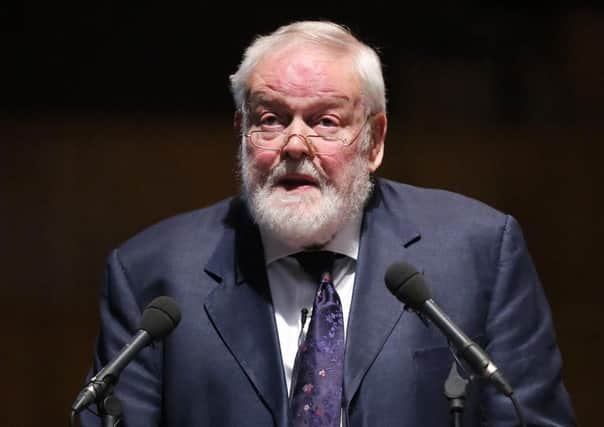Poet joins leaders at St Anne's Belfast to mark Armistice Day


The special service, which is being broadcast live on BBC Television and Radio Ulster, will break with tradition by including a “moment of reflection” rather than an act of remembrance.
Instead of the laying of wreaths, several volumes of Ireland’s Memorial Records will be laid at a field altar of the type used by troops on the front line.
Advertisement
Hide AdAdvertisement
Hide AdThe books will be carried by four people – representing families that had at least one family member killed in the war.
The St Anne’s service – led by Dean of Belfast, the Very Rev Stephen Forde, will coincide with similar commemorations in Dublin, Glasgow and Cardiff, and takes place ahead of the national service at Westminster Abbey in London.
All those from Ireland who were involved in the war, including on the home front, and the dead from all other nations will be remembered at the event.
NI First World War Committee chairman Sir Jeffrey Donaldson said: “As we gather on Sunday...I feel it is appropriate to reflect on the progress that has been made with the themes of remembrance and reconciliation chosen for our commemoration.
Advertisement
Hide AdAdvertisement
Hide Ad“We have engaged in traditional acts of remembrance such as the Last Post and the laying of wreaths, silences recalling those who served and died. We have recognised more than 40 Irish recipients of the Victoria Cross and the names of many more men and women have been added to memorials old and new commemorating the war.”
In a letter published in the order of service, the Republic’s foreign minister Simon Coveney “For far too long remembrance of the war on the island was a source of division. There was a sense that commemoration of the young Irishmen who died in the Somme or Gallipoli was a political declaration, or a marker of community identity.”
“In recent times, and as we have marked the centenaries of the events of that decade, we have seen something very different. We have seen leadership and scholarship and sensitivity and generosity.”
Television and radio coverage begins at 3.30pm.